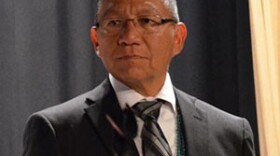On Saturday, President Donald Trump signed two acts into law to investigate cases of missing and murdered Indigenous women and girls in the United States. One of the laws — derived from Savanna's Act — will establish new guidelines for search operations of missing people. The act was named for Savanna LaFontaine-Greywind, a 22-year-old pregnant woman from Fargo, North Dakota who was murdered in 2017.
Trump signed a second law based on the Not Invisible Act, which will foster collaboration between federal justice departments and Indigenous tribes, according to a statement from Navajo Nation officials.
According to the Urban Indian Health Institute, there were 5,712 cases of missing and murdered Indigenous women in 2016. But only 116 of those cases were recorded into the Department of Justice database — about two percent of the total cases. A study conducted for the Department of Justice found that murder rates for Indigenous women can be 10 times higher than the national average.
“Today is a historic day for all tribes across the country," Navajo Nation President Jonathan Nez said in a statement. Nez, alongside Vice President Lizer, have expressed strong support for Savanna's Act; earlier in the year, Nez and Lizer wrote a letter to the U.S. House of Representatives, encouraging the passage of the law, according to a statement from Navajo officials.





